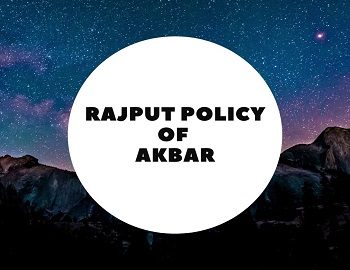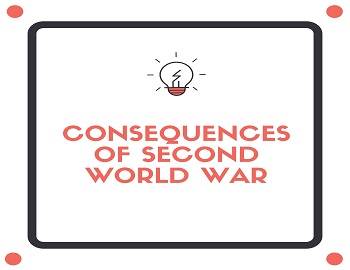Table of Contents
Rajput Policy of Akbar shaped up by the following factors:
- To enter into the largest military labour market in India in order to suppress Afghans and to break the monopoly of Mughal nobles.
- The specific economic and strategic importance of Rajasthan.
Elements of Continuity:
Right from the period of Delhi Sultanate the relations with Hindu nobility was an important question to be solved by various rulers. Even before Akbar, the earlier Muslim rulers inducted Hindus in government services.
Furthermore, some rulers even tried to befriend them. For example- the treatment given by Alauddin Khalji to the ruler of Devagiri, Ramchandra Deva, appears to be the precursor of the Rajput policy of Akbar. Likewise, some Muslim rulers encouraged even matrimonial relationship with Hindu nobles. For example- we can give a reference to the matrimonial relationship between Khizr Khan, the son of Alauddin Khalji and Devla Devi daughter of Raykaran Vaghela.
Even the ruler of Malwa, Maldeva got his daughter married to the son of Sher Shah, Islam Khan. Apart from that Mughal rulers, Babur and Humayun also continued the policy of Matrimonial relationship with Indian nobles. Above all Humayun got the advice from the Safavid ruler, ShahTamash I, he should have befriended one Martial race, Rajputs, against another Martial race, Afghans.
Elements of Change:
Akbar added something to this policy-
- He inducted Hindu nobles into Mughal Mansabdari.
- He provided their own regions to them as Watan Jagir. Apart from that as an additional incentive, they got even Jagir-i-Tanquaw.
- He provided liberty in the matter of religion to his Hindu wives and they were permitted to maintain their relations with their parental house.
Methods to deal with Rajput States:
Akbar adopted carrot and stick policy against Rajput states. It means those rulers who accepted his suzerainty were treated well. But those who refused to submit before him were suppressed with an iron hand.
Consequences:
With his Rajput policy, Akbar entered into the largest military market in India. As a result of his policy, his potential enemy against whom Barani had once expressed his resentment, was converted into a reliable friend.
Comparison Between the Rajput Policy of Akbar and Aurangzeb:
Akbar was a great politician and a wise statesman. He had soon realized that if he wanted his empire to be stable, he must win the friendship of the Rajput’s because they were the military leaders of the Hindus. He allowed the Rajput’s equality of status by contracting matrimonial with them. He gave them high jobs, he gave them perfect freedom of religion by abolishing Jeziah and the Pilgrimage tax etc. He took a keen interest in reforming their social evils. He did everything to win the love and loyalty of the Rajputs. It was because of their help that the Mughals were able to lay the foundation of an empire, which was undoubtedly the greatest, the wealthiest and the strongest in the world at that time.
The Rajput policy of Aurangzeb was completely opposed to that of Akbar. He was a staunch Sunni Muslim. He employed all the state machinery for the spread of Islam. He took various steps against the non-Muslims and the Rajputs. He forbade the construction of new temples and to repair the old ones. He ordered his governors of the provinces to demolish the temples of the Hindus within their area. At the site of the demolished temples, mosques were built. He reimposed the Jeziah and the Pilgrimage taxes. The doors of the government service were closed for the Hindus. Every kind of pressure was exerted on the Hindus, in order to induce them to accept Islam. Because of this policy of religious intolerance, the Rajputs turned against him. They left no stone unturned to cut the roots of the Mughal empire and to bring its downfall.
Aurangzeb desired to conquered whole of Deccan (South India) as Napoleon wanted to conquer Spain. As Spanish Ulcer ruined Napoleon so ‘The Deccan Ulcer” ruined Aurangzeb. This failure of Aurangzeb, caused rule and policy and paved the way for the downfall of his empire.









Comments (No)